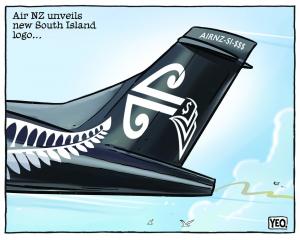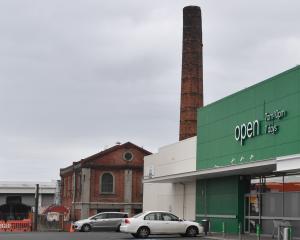
Incidents of abuse are not isolated. Far from it. Ambulance officers reported about 3000 cases of abuse in the past year. Otago-Southland has its unenviable share of the numbers, too: 160 reported instances of abuse in the past nine months, 44 of them physical assaults.
Paramedics have been verbally abused, spat at, bitten, hit, slapped, punched, kicked, threatened with weapons and received death threats. About 10 attacks a month are serious enough to hospitalise staff who require ongoing medical treatment. One St John officer had his back broken.
St John believes the problem is getting steadily worse. In fact, the charitable organisation is now so concerned about acts of violence against its staff it has launched a nationwide awareness campaign titled ``Hands off our ambos'' in the hopes of getting the message through to perpetrators.
It is hard to fathom that such messages of respect and the law should even be needed; that it should be necessary to teach the perpetrators of such violence their actions also often put their own loved ones at risk. That a charity dedicated to supporting others in their hour of need should be under attack. Yet that is sadly the case.
Will it be possible to get the message across, however, when so many of the perpetrators are intoxicated, and common sense and decency clearly go out the window? For a breakdown of the statistics is sobering - and shows that the majority of offenders are far from that. Prime time for cases of abuse against St John is midnight Friday to noon Sunday. Half of the violent incidents involve alcohol or recreational drugs.
While concerns over single-crewing of ambulances are certainly justified in this context, the abuse seems to occur as readily when rigs are fully crewed, too. It doesn't matter how many staff are there, if they are working intently on a patient, they are unlikely to see the violence coming and unable to protect themselves.
The situation is not limited to ambulance staff, of course. Hospital accident and emergency staff are frequent targets of abuse, again much of it as a result of drug or alcohol-affected patients and their companions. Fire crews and police officers often receive similar treatment.
It is testament to the professionalism of hospital staff and emergency responders that they continue to put themselves on the line while working to help others and save lives. But they shouldn't have to accept such attacks as part and parcel of the job. The message from St John is clear: enough is enough. The organisation's chief executive, Peter Bradley, has made clear his staff will no longer enter a dangerous scene until there is police back-up. He acknowledges this could put patients at risk. The organisation also plans to seek prosecutions for assaults on its staff.
Intoxication is often used as an excuse for bad behaviour - even in court. But society's tolerance for our binge-drinking culture and all that entails is slowly changing. Violent crime fuelled by drugs and alcohol is still violent crime. If the safety of St John staff and their patients is threatened and lives are put at risk, perpetrators deserve to feel the full force of the law.
St John staff and volunteers work tirelessly for others under considerable financial constraints. It would be a sad day indeed if the attitudes and actions of a proportion of New Zealanders had a detrimental effect on the 365,000 emergency incidents attended and the 400,000 people treated by St John each year. New Zealand simply cannot afford that to be the case.












